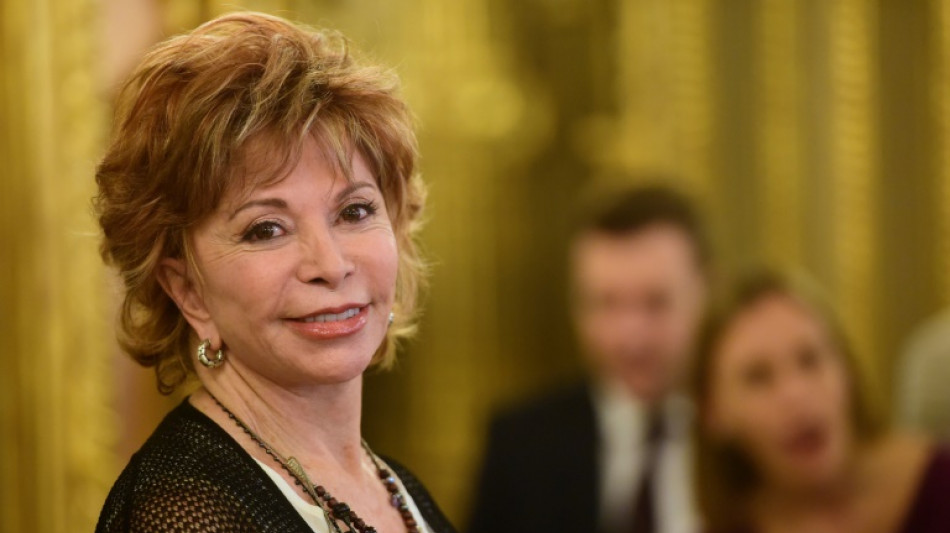
-
 Afghan FM tells Pakistan's top diplomat deportations are 'disappointment'
Afghan FM tells Pakistan's top diplomat deportations are 'disappointment'
-
British cycling icon Hoy and wife provide solace for each other's ills

-
 Money, power, violence in high-stakes Philippine elections
Money, power, violence in high-stakes Philippine elections
-
Iran, US hold second round of high-stakes nuclear talks in Rome

-
 Japanese warships dock at Cambodia's Chinese-renovated naval base
Japanese warships dock at Cambodia's Chinese-renovated naval base
-
US Supreme Court pauses deportation of Venezuelans from Texas

-
 Pakistan foreign minister arrives in Kabul as Afghan deportations rise
Pakistan foreign minister arrives in Kabul as Afghan deportations rise
-
Heat and Grizzlies take final spots in the NBA playoffs

-
 Iran, US to hold second round of high-stakes nuclear talks in Rome
Iran, US to hold second round of high-stakes nuclear talks in Rome
-
Humanoid robots stride into the future with world's first half-marathon

-
 Migrant's expulsion puts Washington Salvadorans on edge
Migrant's expulsion puts Washington Salvadorans on edge
-
Plan for expanded Muslim community triggers hope, fear in Texas

-
 Pakistan foreign minister due in Kabul as deportations rise
Pakistan foreign minister due in Kabul as deportations rise
-
White House touts Covid-19 'lab leak' theory on revamped site

-
 Dodgers star Ohtani skips trip to Texas to await birth of first child
Dodgers star Ohtani skips trip to Texas to await birth of first child
-
US senator says El Salvador staged 'margarita' photo op

-
 Ford 'adjusts' some exports to China due to tariffs
Ford 'adjusts' some exports to China due to tariffs
-
Thomas maintains two-shot lead at RBC Heritage

-
 US to withdraw some 1,000 troops from Syria
US to withdraw some 1,000 troops from Syria
-
Four killed after spring storms wreak havoc in the Alps

-
 Spurs' Popovich reportedly home and well after 'medical incident'
Spurs' Popovich reportedly home and well after 'medical incident'
-
Trump goes to war with the Fed

-
 Celtics chase second straight NBA title in playoff field led by Thunder, Cavs
Celtics chase second straight NBA title in playoff field led by Thunder, Cavs
-
White House site blames China for Covid-19 'lab leak'

-
 Norris edges Piastri as McLaren top Jeddah practice
Norris edges Piastri as McLaren top Jeddah practice
-
Trump warns US could ditch Ukraine talks if no progress

-
 Judge denies Sean 'Diddy' Combs push to delay trial
Judge denies Sean 'Diddy' Combs push to delay trial
-
80 killed in deadliest US attack on Yemen, Huthis say

-
 Lebanon says two killed in Israeli strikes in south
Lebanon says two killed in Israeli strikes in south
-
Trump says US will soon 'take a pass' if no Ukraine deal

-
 F1 success is 'like cooking' - Ferrari head chef Vasseur
F1 success is 'like cooking' - Ferrari head chef Vasseur
-
Cycling mulls slowing bikes to make road racing safer

-
 Macron invites foreign researchers to 'choose France'
Macron invites foreign researchers to 'choose France'
-
Klopp 'happy' in new job despite Real Madrid rumours: agent

-
 Alcaraz into Barcelona semis as defending champion Ruud exits
Alcaraz into Barcelona semis as defending champion Ruud exits
-
Vance meets Italy's Meloni before Easter at the Vatican

-
 Evenepoel returns with victory in Brabantse Pijl
Evenepoel returns with victory in Brabantse Pijl
-
Maresca confident he will survive Chelsea slump

-
 Mob beats to death man from persecuted Pakistan minority
Mob beats to death man from persecuted Pakistan minority
-
Lebanon says one killed in Israeli strike near Sidon

-
 Arsenal's Havertz could return for Champions League final
Arsenal's Havertz could return for Champions League final
-
US officials split on Ukraine truce prospects

-
 Client brain-dead after Paris cryotherapy session goes wrong
Client brain-dead after Paris cryotherapy session goes wrong
-
Flick demands answers from La Liga for 'joke' schedule

-
 'Maddest game' sums up Man Utd career for Maguire
'Maddest game' sums up Man Utd career for Maguire
-
Trial opens for students, journalists over Istanbul protests

-
 Gaza rescuers say Israeli strikes kill 24 after Hamas rejects truce proposal
Gaza rescuers say Israeli strikes kill 24 after Hamas rejects truce proposal
-
'Really stuck': Ukraine's EU accession drive stumbles

-
 'Not the time to discuss future', says Alonso amid Real Madrid links
'Not the time to discuss future', says Alonso amid Real Madrid links
-
74 killed in deadliest US attack on Yemen, Huthis say


Isabel Allende: In Chile, the 'old fogeys' need to go
The "old fogeys" of Chilean politics must go, says Isabel Allende -- a stance that is true to form for the novelist, whose latest book "Violeta" is a sweeping epic depicting the transformation between past and present.
A new generation has taken power in Chile, and Allende, perhaps the most popular Spanish-language writer on the planet, is welcoming the dawning political era with open arms.
"In Chile, the old fogeys of the political and financial world have got to go home -- or to an asylum!" the Chilean author tells AFP during a recent video interview.
Gabriel Boric, a leftist who was elected Chile's youngest-ever president at age 35 last month, is already unsettling markets and turning traditional Latin American politics upside down by unveiling a young, women-majority cabinet.
Allende is cheering him on.
"It is a young generation that is taking power," she says.
She applauds his cabinet choices -- and also notes that this young government will have to implement a new Constitution in Chile.
"And that... is an opportunity for us to ask ourselves what sort of country we want," she says.
The changes make her hopeful, especially as they point towards equality for women and Indigenous people.
"And we must try to ensure that all this is part of the country without damaging the economic system, which has made progress in Chile but is very badly distributed, creating such terrible inequality that people are furious," she says.
- 'Broader vision' -
Change, the journey between the past and the present, has long been a theme of Allende's nearly 30 books, which have been translated into more than 40 languages and sold some 70 million copies.
In her new novel "Violeta," she tells the story of an independent woman who was born during one pandemic and dies during another.
Along the way, she witnesses the many transformations of a South American country that seems very much like Chile.
"The idea came to me after the death of my mother. She died shortly before the (Covid-19) pandemic, and she was born as the Spanish flu was coming to Chile, in 1920," Allende says.
The novel takes place during her mother's lifetime, which she describes as "a period in the 20th century of wars, depressions, dictatorships in Latin America, revolutions.
"I created a protagonist who resembles my mother in many ways, but who is not her and who had a much more interesting life."
The difference, she says, is that "Violeta can support herself, which gives her great freedom. My mother depended first on two husbands, and then on me."
In the novel, Violeta and her family leave the capital and move to the south of the country, where they live alongside people of more humble backgrounds.
It was important for Allende to show those class differences, she says, describing a "caste system" in Latin America "which in some places is quite impenetrable."
"And Chile is a country with many class prejudices, more than other countries, perhaps in part because there was little immigration in its early days.
"So Violeta, if she had remained in her social class, if she had lived the corresponding life, would never have gained a broader vision of the country, and of life."
- Stranger in a familiar land -
That kind of "broader vision" is reflected in Allende's own life also.
The author was born in Lima in 1942 -- but she has been abroad for many years, and now lives near San Francisco in the United States.
She describes a sensation familiar to anyone who has lived far from home for a long time, of being a stranger wherever she goes.
Whenever she returns to Chile, she says, "The first week I am happy, but then I realize that I am a foreigner there, too. It is my destiny.
"In the United States, I speak English with an accent. Anyone who sees me on the street knows that I am a Latina and that I am an immigrant.
"And in Chile, I have lived abroad for 40 years, and the country has changed a lot.
"In my head and in my heart is a country that no longer exists."
- Why stop? -
The journey between the past and the present is also reflected in her writing process, she says.
Some things don't change, such as the date she begins writing.
"I start all my books on January 8, so on the seventh I have to take nerve pills," Allende explains.
"The nerves have never left me, but I've learned that if I show up with discipline before the keyboard each day, something comes out."
She has also become "a little more relaxed," she says -- and she has learned that it is "no good" to have an outline.
"That paralyzes me and I lose all inspiration. I let the story change," she says.
"I enjoy writing so much. People tell me: 'You shouldn't have to write any more, you're getting too old for that.'
"But I love it. Why would I want to stop?"
Y.Bouchard--BTB




